With the successful and growing use of digital twin approaches in established industries such as power, propulsion, and aerospace combined with a rapidly developing biomedical ecosystem of computing, modeling, and expanding data has opened the door to develop the role of digital twins in biomedical applications. The workshop will bring together leaders in the use of digital twins and biomedical applications to provide key insights into launching digital twin efforts, factors influencing the present environment, challenges and opportunities expected along the way, and broader questions shaping the future for digital twins in biomedical applications.
Richard Arthur, Senior Principal Engineer/Senior Director - Computational Methods Research & Digital Engineer, GE Research
Leili Shahriyari, PhD, Assistant Professor, Department of Mathematics & Statistics, University of Massachusetts Amherst
Ilya Shmulevich, PhD, Professor, Institute for Systems Biology
Anil Srivastava, President, Open Health Systems Laboratory (OHSL)
Eric Stahlberg, PhD, Director, Cancer Data Science Initiatives, Frederick National Laboratory for Cancer Research
Andrea Townsend-Nicholson, PhD, Professor of Biochemistry and Molecular Biology, Division of Biosciences, University College London
Thomas Yankeelov, PhD, Professor, Director of Center for Computational Oncology, The University of Texas at Austin
INSTRUCTOR BIOGRAPHIES:
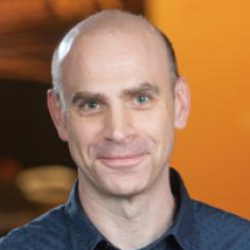 Richard Arthur, Senior Principal Engineer/Senior Director - Computational Methods Research & Digital Engineer, GE Research
Richard Arthur, Senior Principal Engineer/Senior Director - Computational Methods Research & Digital Engineer, GE Research
Rick Arthur is Senior Principal Engineer for GE Research Digital Technologies, focusing on Advanced Computational Methods Research and its application to Digital Engineering. This involves pathfinding of novel computing hardware and software architectures and connecting these with industrial application opportunities. Rick represents GE on several government and professional community advisory councils. Rick has over 30 years' experience with GE, supporting products and services that spanned diverse industrial sectors such as healthcare, air and rail transportation, media, finance, defense and energy. Rick established the Advanced Computing Laboratory to build expertise and facilitate adoption of emerging hardware and software capabilities critical to GE competitive advantage in materials, manufacturing, eCommerce, controls and automation, security, information services, turbomachinery, medical diagnostics, and life sciences. Beyond GE, he has worked with DARPA, NBC-Universal, Lockheed-Martin and the Department of Energy’s National Labs. Rick received a B.S. in Computer Engineering from Clarkson University, an M. Eng. in Computer Systems Engineering from Rensselaer Polytechnic Institute (RPI) and an M.B.A. at the University at Albany. He is a co-chair of the U.S. Council on Competitiveness Advanced Computing Roundtable, technical member of the Exascale Computing Project Industry Council, and has advised on working groups for the National Science Foundation, Office of Science & Technology Policy, universities creating programs in computational methods and companies leading the state of the art in software and computing hardware. He previously served on the Science & Engineering Technical Advisory Council for the Blue Waters supercomputer at the National Center for Supercomputing Applications. Rick co-chairs the AIAA Digital Engineering Integration Committee’s Digital Systems Model working group. He is a Senior Member of the Association for Computing Machinery.
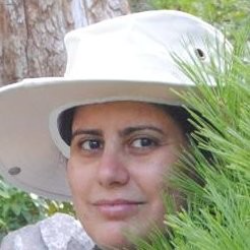 Leili Shahriyari, PhD, Assistant Professor, Department of Mathematics & Statistics, University of Massachusetts Amherst
Leili Shahriyari, PhD, Assistant Professor, Department of Mathematics & Statistics, University of Massachusetts Amherst
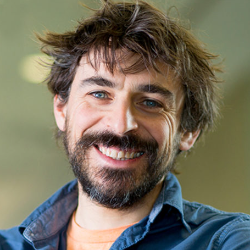 Ilya Shmulevich, PhD, Professor, Institute for Systems Biology
Ilya Shmulevich, PhD, Professor, Institute for Systems Biology
Ilya Shmulevich received his Ph.D. in Electrical and Computer Engineering from Purdue University, West Lafayette, IN, in 1997. His graduate research was in the area of nonlinear signal processing, with a focus on the theory and design of nonlinear digital filters, Boolean algebra, lattice theory, and applications to music pattern recognition. From 1997-1998, he was a postdoctoral researcher at the Nijmegen Institute for Cognition and Information at the University of Nijmegen (now Radboud University) and National Research Institute for Mathematics and Computer Science at the University of Amsterdam in The Netherlands, where he studied computational models of music perception and recognition, focusing on tonality induction and rhythm complexity. In 1998-2000, he worked as a senior researcher at the Tampere International Center for Signal Processing at the Signal Processing Laboratory in Tampere University of Technology, Tampere, Finland. While in Tampere, he did research in nonlinear systems, image recognition and classification, image correspondence, computational learning theory, multiscale and spectral methods, and statistical signal processing. This background proved to be fruitful for undertaking problems in computational biology at a time when genomic technologies were beginning to produce large amounts of data. In 2001, he joined the Department of Pathology at The University of Texas M. D. Anderson Cancer Center as an Assistant Professor and held an adjunct faculty appointment in the Department of Statistics in Rice University. He and his colleagues developed statistical approaches for cancer classification, diagnosis, and prognosis, and applied them to the study of metastasis, cancer progression, and tumor heterogeneity for multiple different cancer types. He co-developed the model class of probabilistic Boolean networks (PBNs), which has been applied to the study of gene regulatory networks in cancer. Dr. Shmulevich joined the ISB faculty in 2005 where he is currently a Professor. Dr. Shmulevich directed a Genome Data Analysis Center within The Cancer Genome Atlas (TCGA) consortium. He also directed one of three NCI Cancer Genomics Cloud Pilots, which is now operating as an NCI Cancer Genomics Cloud Resource (isb-cgc.org). Dr. Shmulevich’s research interests include theoretical studies of complex systems, including information theoretic approaches, as well as the application of image processing and analysis to high-throughput cellular imaging. His main research interest is multiscale modeling for cancer therapy. Dr. Shmulevich is a co-author or co-editor of six books in the areas of computational biology. He holds Affiliate Professor appointments in the Departments of Bioengineering and Electrical Engineering at the University of Washington and has held affiliate appointments in the Department of Signal Processing in Tampere University of Technology, Finland and in the Department of Electronic and Electrical Engineering in Strathclyde University, Glasgow, UK.
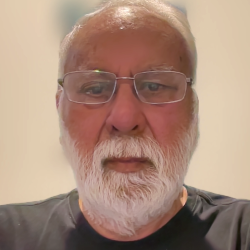 Anil Srivastava, President, Open Health Systems Laboratory (OHSL)
Anil Srivastava, President, Open Health Systems Laboratory (OHSL)
Anil Srivastava as head of Open Health Systems Laboratory (OHSL) located on the JHU Montgomery County Campus as US National Cancer Institute (NCI) in Rockville, MD, leads the ICKA: International Cancer Knowledge Alliance and ICTBioMed: International Consortium for Technology in Biomedicine beside serving as Special Volunteer, Radiation Research Program (RRP) and Member, Quantitive Imaging Network (QIN) International Liaison Committee at NCI. In the past he has worked as international program coordinator with NCI’s Center for Biomedical Informatics and Information Technology (NCI CBIIT) where he led the IUCRG: Indo-US Cancer Research Grid initiative which led to the creation of the National Cancer Grid in India. Later he served as senior advisor for life sciences with Internet2 (University Corporation for Advanced Internet Development) and Advisor to India’s National Knowledge Commission which established the direct fiber connection between the research and education network of India (National Knowledge Network) and United States (Internet2)..
He currently serves as Advisor, Biomedical Informatics for the Indian National Cancer Institute of the All India Institute for Medical Sciences (AIIMS), New Delhi, and Visiting Faculty and Consultant on Information Technology for Tata Memorial Hospital, Mumbai, India. As part of the collaboration between OHSL and Tata Memorial Hospital he advised on international procurement of the proton therapy facility and planning for the center of excellence and research for carbon ion therapy. He has been associated with the conception and planning of the Indian National Cancer Institute of AIIMS from the beginning.
Previously, he was a member of Apple’s Advanced Technology Group. He continues his work as Advisor to the World Bank Group increasingly focusing on health systems and planning for non-communicable diseases treatment and research in LMICs (Lower and Middle Income Countries). In the past he worked as senior professional advisor with Booz-Allen & Hamilton in the Asia-Pacific region.
He has several publications and research papers to his credit and has been speaker at professional conferences (AACR, Accelerating Biology Symposium, BioIT, Indian Cancer Congress, Internet2, etc). Biomedical informatics and establishing international collaboration in cancer research and treatment are his special field of interest and expertise.
Prior to moving to the United States, he was the founding chief executive (1989-91) of NASSCOM: National Association of Software and Service Companies and founding director (1972-86) and head off Knowledge Engineering with Centre for Development of Instructional Technology.
 Eric Stahlberg, PhD, Director, Cancer Data Science Initiatives, Frederick National Laboratory for Cancer Research
Eric Stahlberg, PhD, Director, Cancer Data Science Initiatives, Frederick National Laboratory for Cancer Research
Dr. Eric Stahlberg now directs cancer data science initiatives at the Frederick National Laboratory, having led and launched several initiatives at the lab. He has been instrumental in establishing the Frederick National Laboratory’s high-performance computing initiative and in assembling scientific teams across multiple, complex organizations to advance predictive oncology.
Stahlberg first joined the Frederick National Laboratory in 2011 to form and direct the National Cancer Institute’s Center for Cancer Research Bioinformatics Core, which helped build intramural research collaborations between the national laboratory and the National Cancer Institute.
Since then, Stahlberg has played a leadership role in many key partnerships, including a major collaboration between the National Cancer Institute and the Department of Energy. Under the Joint Design of Advanced Computing Solutions for Cancer (JDACS4C), the National Cancer Institute and Department of Energy are accelerating progress in precision oncology and computing. The collaboration is rooted in three major national initiatives; the Precision Medicine Initiative, the National Strategic Computing Initiative, and the Cancer Moonshot. He has helped lead initiatives to transform data management approaches at the lab as well as more recently leading program efforts exploring the application biomedical digital twins for cancer applications.
Stahlberg has spearheaded the Frederick National Laboratory’s contributions to a number of JDACS4C projects, including ATOM and CANDLE. He helped launch the annual meeting series, Frontiers in Predictive Oncology and Computing, and co-organizes the annual Computational Approaches for Cancer and HPC Applications of Precision Medicine workshops. In 2017, he was recognized as one of FCW‘s Federal 100. Stahlberg holds a Ph.D. in computational chemistry from The Ohio State University.
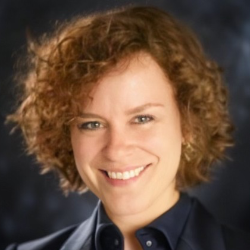 Andrea Townsend-Nicholson, PhD, Professor of Biochemistry and Molecular Biology, Division of Biosciences, University College London
Andrea Townsend-Nicholson, PhD, Professor of Biochemistry and Molecular Biology, Division of Biosciences, University College London
Andrea Townsend-Nicholson holds a chair in Biochemistry & Molecular Biology at University College London (UCL). She obtained a BSc degree in Molecular Genetics & Molecular Biology (University of Toronto, Canada; 1986) and a DSc degree in Cellular & Molecular Biology (Université Louis Pasteur, France; 1990), completed postdoctoral training at the Garvan Institute of Medical Research (Sydney Australia;1991-1995) and UCL (1995-1999), and held a British Heart Foundation Fellowship at UCL from 1999-2001. Her research focuses on understanding the molecular basis of cell surface receptor function in health and disease using a combination of experimental and computational methodologies. Andrea is particularly interested in facilitating the introduction of personalised medicine into clinical practice and in the development of computational methodologies that converge with experimental findings. She teaches medical and undergraduate bioscience students to use supercomputers as part of their taught university curriculum.
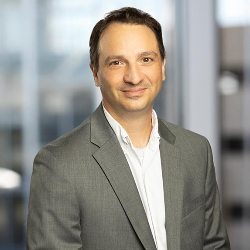 Thomas Yankeelov, PhD, Professor, Director of Center for Computational Oncology, The University of Texas at Austin
Thomas Yankeelov, PhD, Professor, Director of Center for Computational Oncology, The University of Texas at Austin
Tom Yankeelov received an MA in Applied Mathematics and an MS in Physics from Indiana University, before completing the PhD in Biomedical Engineering at SUNY @ Stony Brook. He completed his post-doc under Dr. John Gore at the Vanderbilt University Institute of Imaging Science and climbed the ranks to Full Professor in 2010. He then joined the faculty at The University of Texas at Austin in 2016 where he is now the W.A. "Tex" Moncrief Chair of Computational Oncology and Professor of Biomedical Engineering, Diagnostic Medicine, and Oncology. Dr. Yankeelov is the founding Director of the Center for Computational Oncology, and also serves as co-Director for the Quantitative Oncology Research Program and Director of Cancer Imaging Research within the Livestrong Cancer Institutes at UT Austin. He is also an Adjunct Professor of Imaging Physics at MD Anderson Cancer Center. The overall goal of Dr. Yankeelov's research is to develop tumor forecasting methods by integrating advanced imaging technologies with predictive, multi-scale models of tumor growth to optimize therapy. This is accomplished by dividing his efforts into approximately equal parts mathematical modeling, pre-clinical development, and implementation in clinical trials.